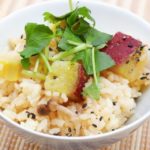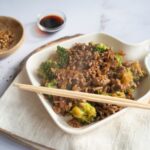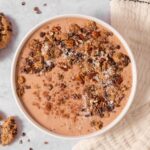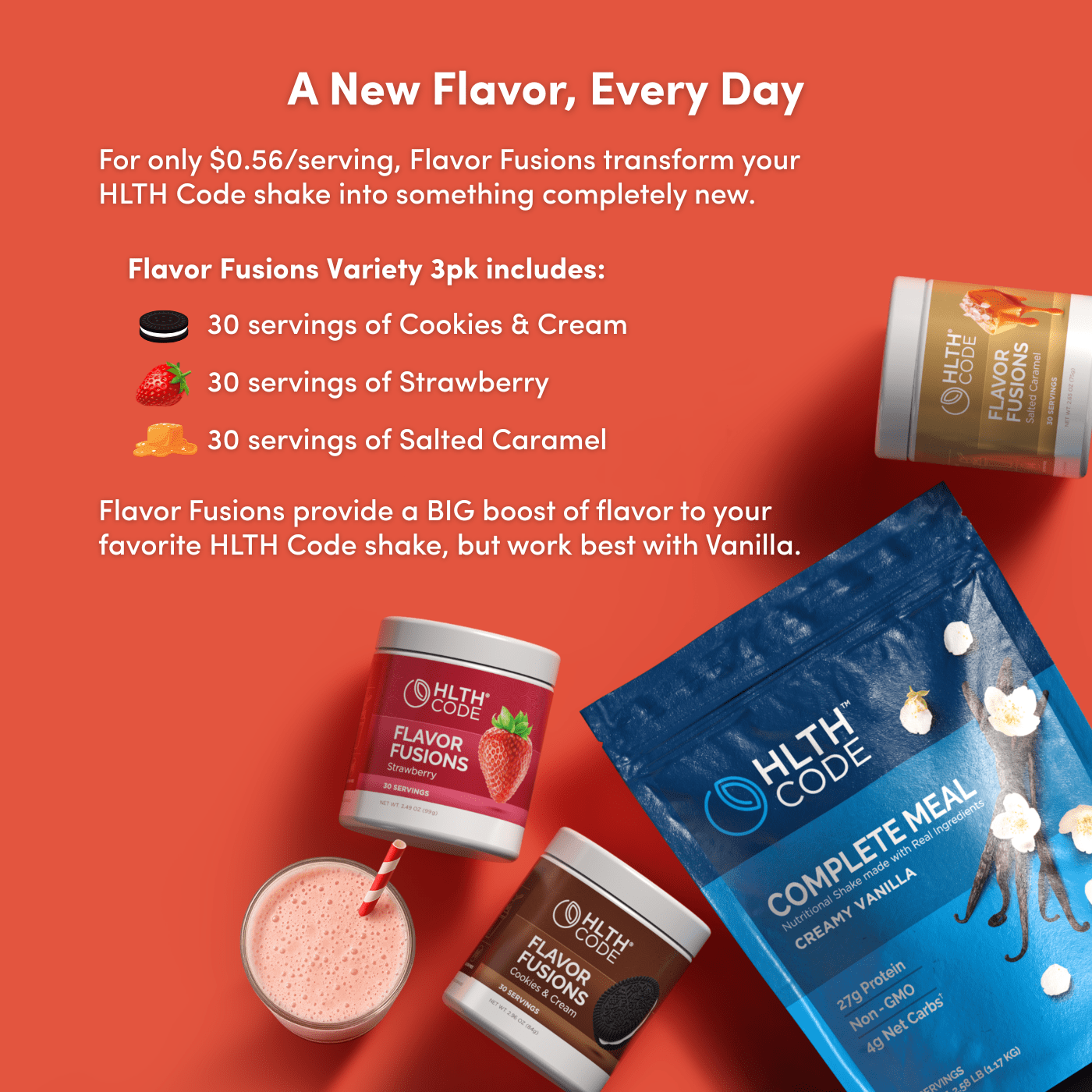Low Carb Superfoods
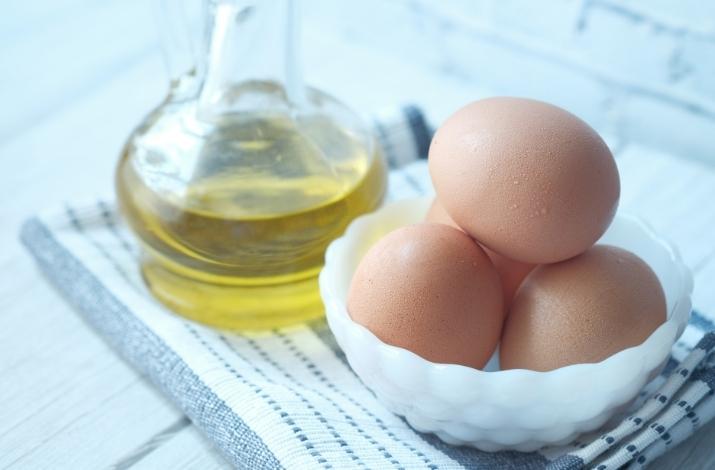
The buzzword “superfood” gets thrown around quite often, especially in nutrition circles. Headlines using this word are really catchy, especially for those who are health-conscious and genuinely want to improve their well-being. The word “superfood” may make us imagine foods that act on the body in a powerful way, preventing disease, lowering blood sugar, containing antioxidants, etc. Merriam-Webster defines a superfood “as a food (such as salmon, broccoli, or blueberries) that is rich in compounds (such as antioxidants, fiber, or fatty acids) considered beneficial to a person’s health.” With this definition in mind, let’s go through some foods that are true nutrition powerhouses that also fit great in a low-carb lifestyle.
Fatty Fish: Salmon, mackerel, sardines, and anchovies are loaded with omega 3’s. This includes all three forms, eicosapentaenoic acid (EPA), docosahexaenoic acid (DHA), and alpha-linolenic acid (ALA). These all play a critical role in fighting inflammation, improving heart health, supporting mental health, and improving bone health [1,2,3].
Red Meat: Beef and other sources of red meat (lamb, pork, venison, goat, etc) have been feared for far too long. It provides a lot of nutrients and is considered a complete protein. Beef is a great source of vitamin B12, zinc, and absorbable iron. Lamb is also another extremely nutrient-dense red meat (high in protein, zinc, selenium, riboflavin, niacin, B12, B6, and iron) [4].
Bone Broth: Bone broth contains glycine, which supports relaxation and anxiety reduction. Animal bones are rich in calcium, magnesium, potassium, phosphorus, and other trace minerals. The marrow can provide vitamin A, K2, and other minerals like zinc, iron, boron, etc. Bone broth is also rich in collagen and the amino acid glutamine. All of these vitamins and minerals help strengthen and build strong bones, alongside rebuilding the gut lining. [5,6]
Eggs: Eggs contain a little bit of almost every nutrient you could need, and are considered one of the most nutrient-dense foods on the globe. Contrary to popular belief, they have a positive effect on cholesterol, contain choline, arelinked to a lowered risk of heart disease, and are a complete protein [7,8,9,10].
Cacao: Cacao is rich in polyphenols (which are linked to reducing inflammation, better blood flow, and lower blood pressure/blood sugar). Cocoa may lower the risk of heart attack and stroke, and improve blood flow to the brain. [11,12]
Organ Meats: These are another fantastic source of vitamins, minerals and protein. Many organ meats are particularly high in zinc and B vitamins, which can play a role in preventing Alzheimer’s and increasing energy levels. [13]
Olive Oil: Extra virgin olive is particularly good for you as it is high in monounsaturated fats. It contains a large number of antioxidants, is largely anti-inflammatory, and can help prevent heart disease. Olive oil is also protective against strokes, reduces the risk of diabetes, and can help treat rheumatoid arthritis. [14,15,16,17,18]
All of these foods are highly nutritious and can easily be incorporated into a low-carb or ketogenic diet. Adding them can increase the nutrient density of your diet and have positive health effects that go beyond keeping you full!
References
- Libby P. (2002). Inflammation in atherosclerosis. Nature, 420(6917), 868–874. https://doi.org/10.1038/nature01323
- Leaf A. (2008). Historical overview of n-3 fatty acids and coronary heart disease. The American journal of clinical nutrition, 87(6), 1978S–80S. https://doi.org/10.1093/ajcn/87.6.1978S
- Grosso, G., Galvano, F., Marventano, S., Malaguarnera, M., Bucolo, C., Drago, F., & Caraci, F. (2014). Omega-3 fatty acids and depression: scientific evidence and biological mechanisms. Oxidative medicine and cellular longevity, 2014, 313570. https://doi.org/10.1155/2014/313570
- BSc, A. A. (2019, March 26). Lamb 101: Nutrition Facts and health effects. Healthline. Retrieved August 22, 2022, from https://www.healthline.com/nutrition/foods/lamb
- Hsu, D. J., Lee, C. W., Tsai, W. C., & Chien, Y. C. (2017). Essential and toxic metals in animal bone broths. Food & nutrition research, 61(1), 1347478. https://doi.org/10.1080/16546628.2017.1347478
- Rao, R., & Samak, G. (2012). Role of Glutamine in Protection of Intestinal Epithelial Tight Junctions. Journal of epithelial biology & pharmacology, 5(Suppl 1-M7), 47–54. https://doi.org/10.2174/1875044301205010047
- Jones, P. J., Pappu, A. S., Hatcher, L., Li, Z. C., Illingworth, D. R., & Connor, W. E. (1996). Dietary cholesterol feeding suppresses human cholesterol synthesis measured by deuterium incorporation and urinary mevalonic acid levels. Arteriosclerosis, thrombosis, and vascular biology, 16(10), 1222–1228. https://doi.org/10.1161/01.atv.16.10.1222
- Shimomura, I., Bashmakov, Y., Shimano, H., Horton, J. D., Goldstein, J. L., & Brown, M. S. (1997). Cholesterol feeding reduces nuclear forms of sterol regulatory element binding proteins in hamster liver. Proceedings of the National Academy of Sciences of the United States of America, 94(23), 12354–12359. https://doi.org/10.1073/pnas.94.23.12354
- Schnohr, P., Thomsen, O. O., Riis Hansen, P., Boberg-Ans, G., Lawaetz, H., & Weeke, T. (1994). Egg consumption and high-density-lipoprotein cholesterol. Journal of internal medicine, 235(3), 249–251. https://doi.org/10.1111/j.1365-2796.1994.tb01068.x
- Mutungi, G., Waters, D., Ratliff, J., Puglisi, M., Clark, R. M., Volek, J. S., & Fernandez, M. L. (2010). Eggs distinctly modulate plasma carotenoid and lipoprotein subclasses in adult men following a carbohydrate-restricted diet. The Journal of nutritional biochemistry, 21(4), 261–267. https://doi.org/10.1016/j.jnutbio.2008.12.011
- Ludovici, V., Barthelmes, J., Nägele, M. P., Enseleit, F., Ferri, C., Flammer, A. J., Ruschitzka, F., & Sudano, I. (2017). Cocoa, Blood Pressure, and Vascular Function. Frontiers in nutrition, 4, 36. https://doi.org/10.3389/fnut.2017.00036
- Desideri, G., Kwik-Uribe, C., Grassi, D., Necozione, S., Ghiadoni, L., Mastroiacovo, D., Raffaele, A., Ferri, L., Bocale, R., Lechiara, M. C., Marini, C., & Ferri, C. (2012). Benefits in cognitive function, blood pressure, and insulin resistance through cocoa flavanol consumption in elderly subjects with mild cognitive impairment: the Cocoa, Cognition, and Aging (CoCoA) study. Hypertension (Dallas, Tex. : 1979), 60(3), 794–801. https://doi.org/10.1161/HYPERTENSIONAHA.112.193060
- Contributors, W. M. D. E. (n.d.). Are there health benefits to eating organ meat? pros and cons, nutrition information, and more. WebMD. Retrieved August 23, 2022, from https://www.webmd.com/diet/health-benefits-organ-meat
- Basu, A., Devaraj, S., & Jialal, I. (2006). Dietary factors that promote or retard inflammation. Arteriosclerosis, thrombosis, and vascular biology, 26(5), 995–1001. https://doi.org/10.1161/01.ATV.0000214295.86079.d1
- Beauchamp, G. K., Keast, R. S., Morel, D., Lin, J., Pika, J., Han, Q., Lee, C. H., Smith, A. B., & Breslin, P. A. (2005). Phytochemistry: ibuprofen-like activity in extra-virgin olive oil. Nature, 437(7055), 45–46. https://doi.org/10.1038/437045a
- Konstantinidou, V., Covas, M. I., Muñoz-Aguayo, D., Khymenets, O., de la Torre, R., Saez, G., Tormos, M., Toledo, E., Marti, A., Ruiz-Gutiérrez, V., Ruiz Mendez, M. V., & Fito, M. (2010). In vivo nutrigenomic effects of virgin olive oil polyphenols within the frame of the Mediterranean diet: a randomized controlled trial. FASEB journal : official publication of the Federation of American Societies for Experimental Biology, 24(7), 2546–2557. https://doi.org/10.1096/fj.09-148452
- Psaltopoulou, T., Naska, A., Orfanos, P., Trichopoulos, D., Mountokalakis, T., & Trichopoulou, A. (2004). Olive oil, the Mediterranean diet, and arterial blood pressure: the Greek European Prospective Investigation into Cancer and Nutrition (EPIC) study. The American journal of clinical nutrition, 80(4), 1012–1018. https://doi.org/10.1093/ajcn/80.4.1012
- Berbert, A. A., Kondo, C. R., Almendra, C. L., Matsuo, T., & Dichi, I. (2005). Supplementation of fish oil and olive oil in patients with rheumatoid arthritis. Nutrition (Burbank, Los Angeles County, Calif.), 21(2), 131–136. https://doi.org/10.1016/j.nut.2004.03.023
This article is for informational and educational purposes only. It is not, nor is it intended to be substitute for professional medical advice, diagnosis, or treatment and should never be relied upon for specific medical advice.






